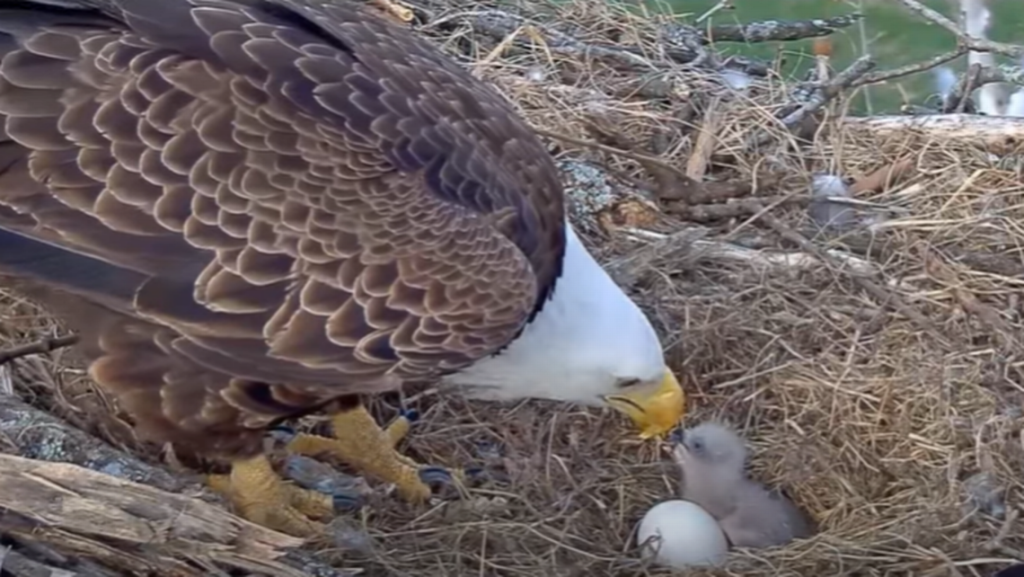After a month of faithful guarding by bald eagle parents in West Virginia, a chick with a promising start hatched to a pair known as Bella and Scout. Bella laid three eggs between late February and early March, with the eggs typically incubating for 35 to 38 days. However, one egg broke, and the other two were briefly left unincubated as the parents had to chase away young eagles encroaching on the nest. Supporter were hopeful the remaining eggs were viable and expected them to hatch in early April. Finally, on April 8, an eaglet emerged from its shell, with Bella feeding it fish for its first meal that evening.
Despite the exciting hatching, sadness struck when Scout, who was likely in his first mating season, displayed unexpected behavior. He consumed the hatchling, leaving fans dismayed by the outcome. While the average bald eagle diet consists of fish and dead animals, they are known to sometimes eat their own young. Conservationists emphasized that bird behavior is complex and driven by hormones and instinct, urging viewers not to anthropomorphize the animals. The parents had been diligently incubating the eggs through rain and thunderstorms, but after the chick’s death, they left the third and final egg in the nest without incubation.
Bald eagles can live up to 30 years in the wild, but chicks can have high mortality rates due to various factors such as issues with humans, food scarcity, or disease. Nature can be both wonderful and harsh at the same time, as demonstrated by the events at the National Conservation Training Center in West Virginia. The nest was monitored through a live eagle cam, allowing viewers to witness the highs and lows of Bella and Scout’s journey. The pair had a loyal following, with fans expressing shock and heartbreak over the loss of the eaglet.
The conservation center emphasized that bald eagles are naturally predatory and aggressive, necessary traits for their survival. While the events were tragic, experts cautioned against projecting human emotions onto the birds. The pair’s behavior demonstrated the complexities of nature, with the mom diligently incubating the eggs while the dad exhibited surprising behavior. The incident underscored the harsh realities of the animal kingdom and the challenges that wildlife face in their natural habitats.
The nest at the U.S. Fish and Wildlife Services’ National Conservation Training Center is a location of interest for bird enthusiasts and conservationists, providing valuable insights into the lives of bald eagles. Despite the tragic outcome, the events highlighted the need for continued conservation efforts to protect wildlife and their habitats. The incident served as a reminder of the complexities of nature and the delicate balance that exists in the natural world. While difficult to witness, the events at the nest offered viewers a glimpse into the challenges faced by wild animals and the resilience required for survival.


